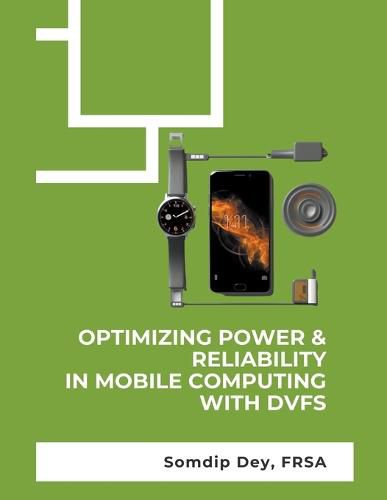Readings Newsletter
Become a Readings Member to make your shopping experience even easier.
Sign in or sign up for free!
You’re not far away from qualifying for FREE standard shipping within Australia
You’ve qualified for FREE standard shipping within Australia
The cart is loading…






This title is printed to order. This book may have been self-published. If so, we cannot guarantee the quality of the content. In the main most books will have gone through the editing process however some may not. We therefore suggest that you be aware of this before ordering this book. If in doubt check either the author or publisher’s details as we are unable to accept any returns unless they are faulty. Please contact us if you have any questions.
Low power mobile computing systems such as smartphones and wearables have become an integral part of our daily lives and are used in various ways to enhance our daily lives. Majority of modern mobile computing systems are powered by multi-processor System-on-a-Chip (MPSoC), where multiple processing elements are utilized on a single chip. Given the fact that these devices are battery operated most of the times, thus, have limited power supply and the key challenges include catering for performance while reducing the power consumption. Moreover, the reliability in terms of lifespan of these devices are also affected by the peak thermal behaviour on the device, which retrospectively also make such devices vulnerable to temperature side-channel attack. This book is concerned with performing Dynamic Voltage and Frequency Scaling (DVFS) on different processing elements such as CPU & GPU, and memory unit such as RAM to address the aforementioned challenges. Firstly, we design a Computer Vision based machine learning technique to classify applications automatically into different categories of workload such that DVFS could be performed on the CPU to reduce the power consumption of the device while executing the application. Secondly, we develop a reinforcement learning based agent to perform DVFS on CPU and GPU while considering the user's interaction with such devices to optimize power consumption and thermal behaviour. Next, we develop a heuristic based automated agent to perform DVFS on CPU, GPU and RAM to optimize the same while executing an application. Finally, we explored the affect of DVFS on CPUs leading to vulnerabilities against temperature side-channel attack and hence, we also designed a methodology to secure against such attack while improving the reliability in terms of lifespan of such devices.
This book is based on the doctoral thesis titled, "Novel DVFS Methodologies For Power-Efficient Mobile MPSoC." Cite: Dey, Somdip (2023) Novel DVFS Methodologies For Power-Efficient Mobile MPSoC. Doctoral thesis, University of Essex.
$9.00 standard shipping within Australia
FREE standard shipping within Australia for orders over $100.00
Express & International shipping calculated at checkout
This title is printed to order. This book may have been self-published. If so, we cannot guarantee the quality of the content. In the main most books will have gone through the editing process however some may not. We therefore suggest that you be aware of this before ordering this book. If in doubt check either the author or publisher’s details as we are unable to accept any returns unless they are faulty. Please contact us if you have any questions.
Low power mobile computing systems such as smartphones and wearables have become an integral part of our daily lives and are used in various ways to enhance our daily lives. Majority of modern mobile computing systems are powered by multi-processor System-on-a-Chip (MPSoC), where multiple processing elements are utilized on a single chip. Given the fact that these devices are battery operated most of the times, thus, have limited power supply and the key challenges include catering for performance while reducing the power consumption. Moreover, the reliability in terms of lifespan of these devices are also affected by the peak thermal behaviour on the device, which retrospectively also make such devices vulnerable to temperature side-channel attack. This book is concerned with performing Dynamic Voltage and Frequency Scaling (DVFS) on different processing elements such as CPU & GPU, and memory unit such as RAM to address the aforementioned challenges. Firstly, we design a Computer Vision based machine learning technique to classify applications automatically into different categories of workload such that DVFS could be performed on the CPU to reduce the power consumption of the device while executing the application. Secondly, we develop a reinforcement learning based agent to perform DVFS on CPU and GPU while considering the user's interaction with such devices to optimize power consumption and thermal behaviour. Next, we develop a heuristic based automated agent to perform DVFS on CPU, GPU and RAM to optimize the same while executing an application. Finally, we explored the affect of DVFS on CPUs leading to vulnerabilities against temperature side-channel attack and hence, we also designed a methodology to secure against such attack while improving the reliability in terms of lifespan of such devices.
This book is based on the doctoral thesis titled, "Novel DVFS Methodologies For Power-Efficient Mobile MPSoC." Cite: Dey, Somdip (2023) Novel DVFS Methodologies For Power-Efficient Mobile MPSoC. Doctoral thesis, University of Essex.